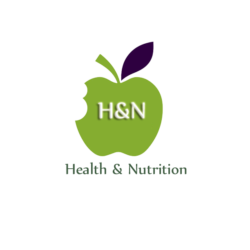Women’s health is intricately tied to nutrition, as different stages of life demand specific nutrients to support overall well-being. From adolescence to menopause and beyond, understanding the unique nutritional needs at each phase can significantly impact health outcomes. This article will explore the essential components of women’s health nutrition, offering practical advice on how to maintain a balanced diet that caters to a woman’s changing needs.
Introduction: The Importance of Nutrition in Women’s Health
Good nutrition is the cornerstone of health, particularly for women. The physiological and hormonal differences between men and women mean that women require specific nutrients to support their bodies through different stages of life. From menstruation and pregnancy to menopause, women’s nutritional needs are dynamic and require careful consideration.
Key Points to Consider:
- Understanding the role of nutrients in women’s health.
- The impact of poor nutrition on women’s health.
- How to implement balanced eating habits.
1. Nutritional Needs During Adolescence
Adolescence is a critical period for growth and development, particularly in girls, who undergo significant hormonal changes. During this time, it’s essential to focus on nutrients that support bone health, menstrual health, and overall development.
Key Nutrients:
- Calcium and Vitamin D: These are crucial for bone development. Girls aged 9-18 need 1,300 mg of calcium daily.
- Iron: Due to the onset of menstruation, adolescent girls need more iron to prevent anemia. The recommended daily allowance (RDA) for iron is 15 mg.
- Protein: Supports muscle development and overall growth. Adolescents should consume around 46 grams of protein daily.
Dietary Tips:
- Include dairy products, leafy greens, and fortified foods for calcium.
- Incorporate lean meats, beans, and fortified cereals to meet iron needs.
- Ensure a balanced diet with adequate protein from various sources like eggs, meat, and legumes.
2. Nutrition for Reproductive Health
A woman’s reproductive years are marked by significant hormonal changes, particularly during menstruation, pregnancy, and breastfeeding. Nutrition plays a vital role in supporting reproductive health and ensuring a healthy pregnancy.
Key Nutrients:
- Folate (Vitamin B9): Essential for preventing neural tube defects during pregnancy. Women of childbearing age should consume 400-800 mcg of folate daily.
- Iron: Continued importance during menstruation and pregnancy, with increased needs during pregnancy (27 mg/day).
- Omega-3 Fatty Acids: These support fetal brain development and reduce inflammation. Aim for at least 250 mg of EPA and DHA daily.
Dietary Tips:
- Consume leafy greens, citrus fruits, and fortified grains for folate.
- Include lean meats, poultry, and plant-based iron sources, along with vitamin C-rich foods to enhance absorption.
- Eat fatty fish like salmon, flaxseeds, and walnuts for omega-3s.
3. Nutrition During Menopause
Menopause brings a decrease in estrogen levels, leading to increased risks for conditions such as osteoporosis and heart disease. Adjusting nutrition during this stage can help manage symptoms and reduce health risks.
Key Nutrients:
- Calcium and Vitamin D: Vital for bone health, with a daily calcium intake of 1,200 mg and 600-800 IU of vitamin D recommended for postmenopausal women.
- Phytoestrogens: Plant compounds that mimic estrogen and may help reduce menopausal symptoms. Found in soy, flaxseeds, and legumes.
- Fiber: Helps manage weight, cholesterol, and blood sugar levels. Aim for at least 21 grams of fiber daily.
Dietary Tips:
- Focus on dairy products, fortified plant milks, and green leafy vegetables for calcium.
- Incorporate soy products and flaxseeds into your diet for phytoestrogens.
- Increase your intake of whole grains, fruits, vegetables, and legumes for fiber.
4. The Role of Micronutrients in Women’s Health
Micronutrients, though required in smaller amounts, are crucial for various bodily functions, from maintaining energy levels to supporting the immune system. Women need to pay particular attention to the following micronutrients:
Key Micronutrients:
- B Vitamins: Support energy production and cognitive function. Sources include whole grains, eggs, and dairy.
- Magnesium: Involved in over 300 biochemical reactions in the body, important for muscle and nerve function. Found in nuts, seeds, and leafy greens.
- Zinc: Essential for immune function and wound healing. Women need 8 mg of zinc daily, which can be found in meat, shellfish, and legumes.
Dietary Tips:
- Ensure a diet rich in a variety of whole foods to meet micronutrient needs.
- Consider a multivitamin if you have dietary restrictions or are at risk of deficiencies.
5. Practical Tips for Balanced Eating
Achieving balanced nutrition is not just about focusing on individual nutrients but also about adopting a holistic approach to eating.
Tips for Balanced Eating:
- Diverse Diet: Include a variety of foods from all food groups—fruits, vegetables, grains, proteins, and dairy.
- Portion Control: Be mindful of portion sizes to avoid overeating, which can lead to weight gain and related health issues.
- Hydration: Adequate water intake is essential for overall health. Aim for at least 8 glasses of water daily.
- Mindful Eating: Pay attention to hunger cues and avoid emotional eating. Eating slowly and enjoying meals can improve digestion and satisfaction.
6. Special Considerations: Vegetarian and Vegan Diets
Women who follow vegetarian or vegan diets need to be particularly mindful of their nutrient intake to avoid deficiencies, especially in iron, vitamin B12, and omega-3 fatty acids.
Key Nutrients to Monitor:
- Iron: Plant-based iron sources (non-heme iron) are less easily absorbed. Pairing them with vitamin C-rich foods can enhance absorption.
- Vitamin B12: Primarily found in animal products, so supplementation may be necessary for those on a vegan diet.
- Omega-3 Fatty Acids: Consider algae-based supplements or include flaxseeds and chia seeds for ALA, a precursor to EPA and DHA.
Dietary Tips:
- Plan meals to include a variety of protein sources like beans, lentils, tofu, and quinoa.
- Use fortified foods and supplements to ensure adequate intake of critical nutrients like B12 and vitamin D.
- Include nuts, seeds, and leafy greens regularly for a broad spectrum of nutrients.
7. The Impact of Lifestyle on Nutrition
Nutrition doesn’t exist in a vacuum. Lifestyle factors like physical activity, stress levels, and sleep quality can all influence how nutrients are processed and utilized in the body.
Lifestyle Considerations:
- Physical Activity: Regular exercise enhances metabolic health and supports weight management, which can help prevent chronic diseases.
- Stress Management: Chronic stress can lead to poor dietary choices and nutrient depletion, so managing stress is crucial for maintaining a healthy diet.
- Sleep: Quality sleep is essential for metabolic health, and poor sleep can disrupt hormones that regulate hunger and appetite.
Practical Tips:
- Engage in regular physical activity, aiming for at least 150 minutes of moderate exercise per week.
- Practice stress-reducing techniques such as mindfulness, yoga, or deep breathing exercises.
- Prioritize sleep hygiene to ensure you get 7-9 hours of sleep per night.
Conclusion: Embracing a Holistic Approach to Women’s Health Nutrition
Women’s health is deeply connected to nutrition. By understanding and addressing the unique nutritional needs at each stage of life, women can optimize their health, prevent chronic diseases, and improve their overall quality of life. A balanced diet rich in essential nutrients, combined with a healthy lifestyle, is the foundation of long-term health and well-being for women.
Final Tips:
- Regularly assess and adjust your diet as you transition through different life stages.
- Don’t hesitate to consult with a healthcare provider or a nutritionist for personalized advice.
- Remember that small, consistent changes in your diet can have a significant impact on your overall health.




